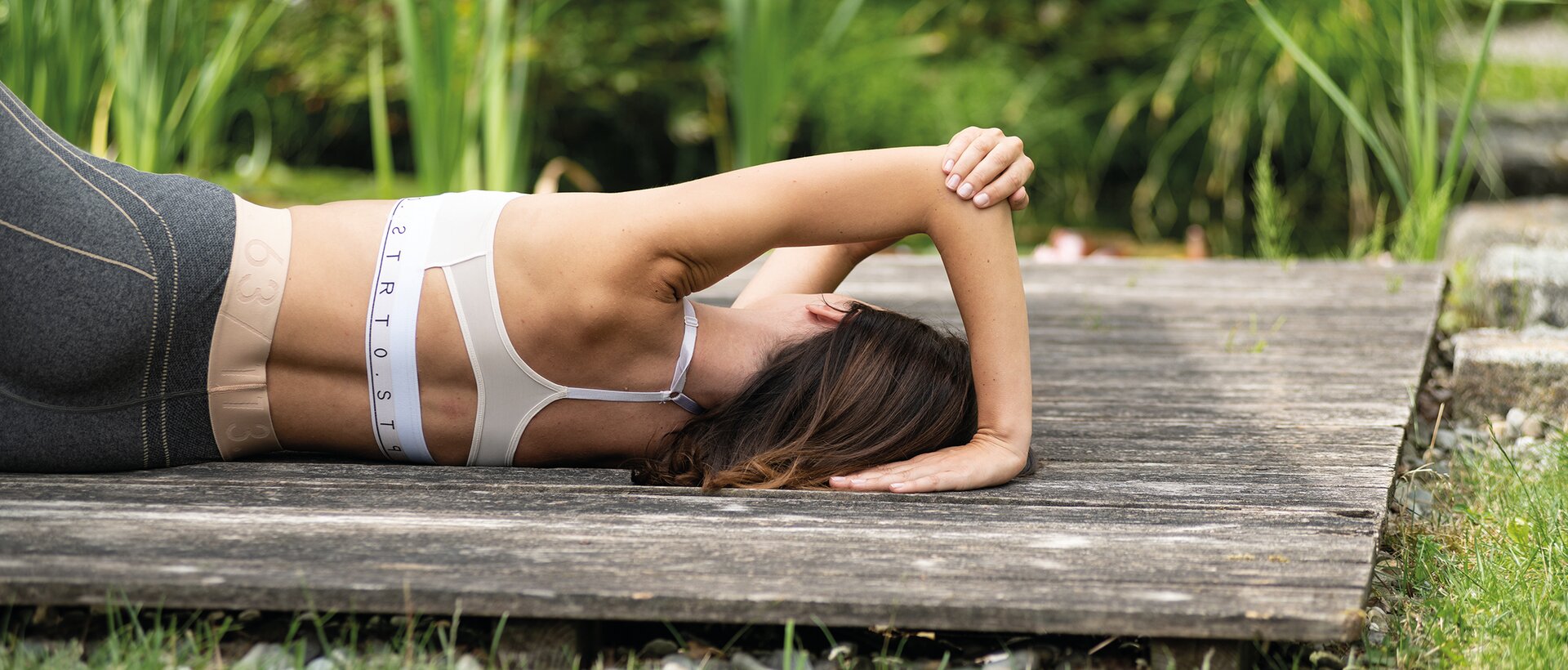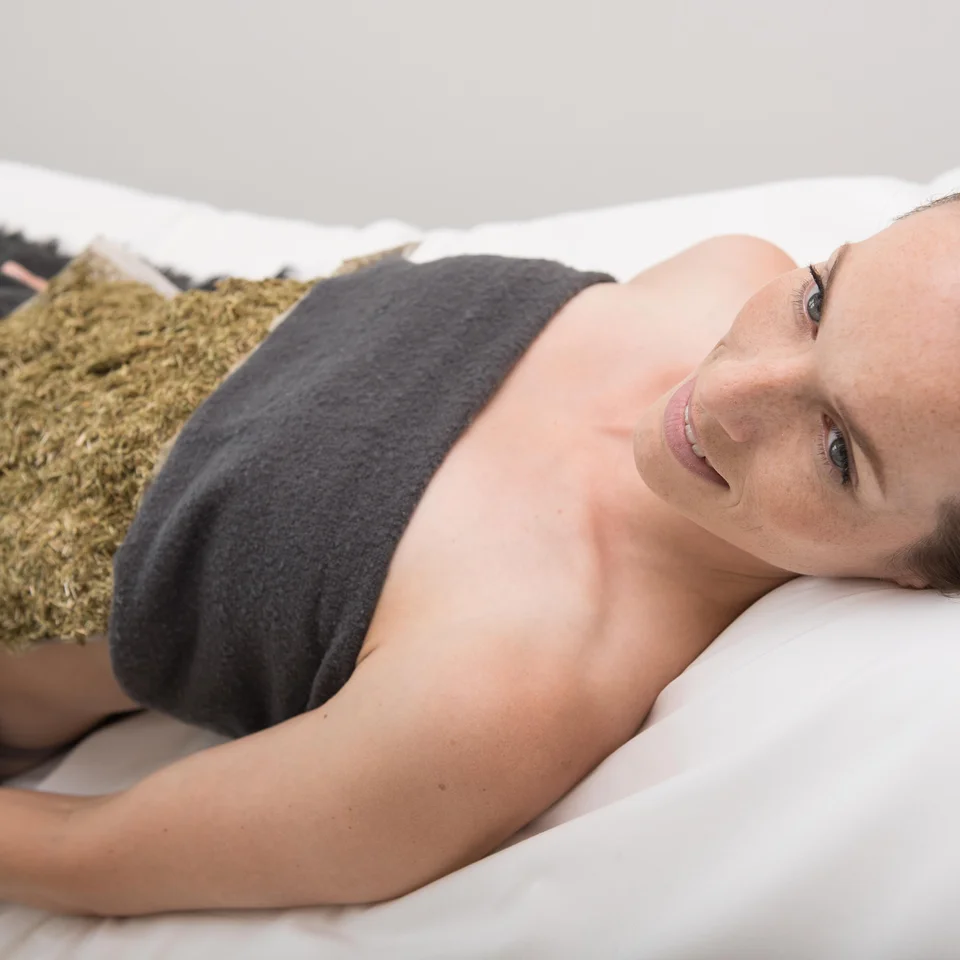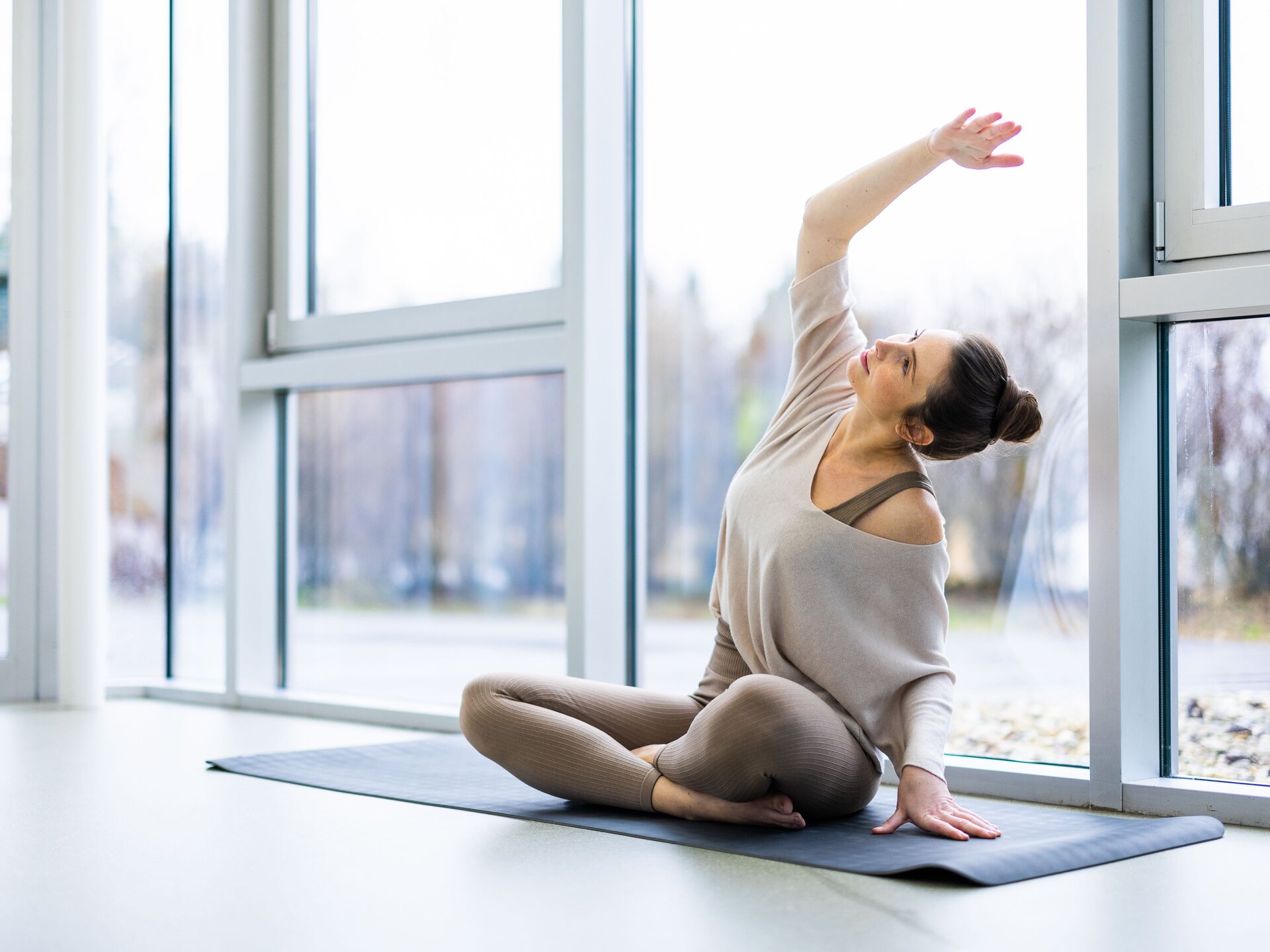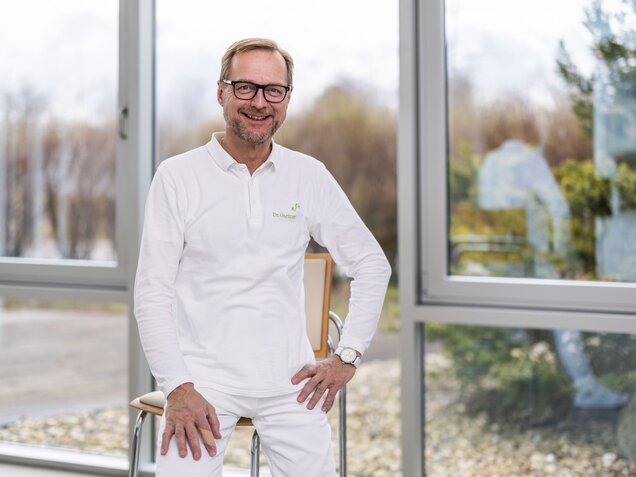Relaxing correctly - measures & techniques
Physical and mental health are characterised by a balance of tension and relaxation. Many people struggle to find this equilibrium and end up suffering from chronic stress, which in turn can have serious negative impacts on overall wellbeing. Dr Peter Gartner, Medical Director at Park Igls, talks to clinical psychologist, neuropsychologist and health psychologist Dr Melanie Robertson, about the best methods and techniques to relax and find inner peace.
Why is relaxation so important for us?
Dr Gartner: Everything we know is characterised by a mix of tension and relaxation. This goes all the way down to individual muscle fibres – each one needs energy to contract and energy to relax. To avoid an imbalance, we need an equal amount of tension and relaxation. The aim is therefore always to keep these two elements in harmony. In medical systems such as TCM this idea of equilibrium or balance is ultimately what defines health.
Dr Robertson: Brief periods of stress have a performance-enhancing effect, but if this stress becomes chronic and prolonged then it can lead to mental and physical illness. Relationships and friendships also suffer. Finding a real balance is therefore essential – each period of stress must be followed by a period of relaxation. If you manage to do this and balance out your energy levels, you will be able to cope well with stress. In simple terms, if after challenging periods you take time to relax, you will remain productive in the long term.
Dr Gartner: Many of our patients who come to Park Igls to relax and improve their overall wellbeing are good examples of what can happen if stress lasts too long. Chronic stress can manifest itself in physical symptoms such as tense muscles. In blood tests we often see raised levels of substances such as the inflammation marker interleukin-6 in people suffering from chronic stress. This in turn causes cortisol levels and blood sugar to rise, resulting in what we refer to these days as lifestyle diseases. There is no doubt that stress makes you ill, which is why it is so important to always find a balance.
Ideal for anyone aiming for optimal health benefits on as broad a basis as possible.
Is it healthy to be relaxed all the time?
Dr Gartner: No. There is a medical condition called fatigue syndrome which occurs when the adrenal glands are completely burnt out and produce neither stress hormones nor tension hormones nor sex hormones. People who suffer from this condition have no energy, no libido and spend all day lying in bed. They may appear to be relaxed, but they are not healthy.
Dr Robertson: Many patients with long Covid have experiences with chronic fatigue syndrome ME/CFS (myalgic encephalomyelitis). This is very difficult to detect and is worse than severe depression. There is often a lack of understanding from those around them. People with fatigue syndrome looking for a relaxing holiday in Austria will benefit greatly from a stay at Park Igls.
Learn the true essence of deep relaxation
What do you tell patients who come to you with severe stress?
Dr Robertson: For me personally, it is important to address the underlying cause. Together with the patient, I identify and work on the things in their lives which cause them stress and drain their energy. We then start to restructure their daily routine. During this phase it is really important to create a safe and protected environment for the patient. In some cases that can mean helping them distance themselves from certain issues and people. People suffering from stress and exhaustion are often very devoted and put the needs of others above their own. They also tend to have very high expectations of themselves. That's why we use the first meeting to give patients a tool that helps them recognise and and address these issues.
Dr Gartner: I prescribe the Mayr Cure to all my patients. Slow, repetitive chewing at mealtimes has an almost meditative effect. The idea is that mindful eating and chewing can bring peace and calm to the mind. After two days at most, we notice a sense of relaxation sets in. The intestinal mucosa increases and the body produces higher levels of serotonin. The Mayr Cure helps balances out the patient's neuro-metabolism. This is a very satisfying process for us to observe.
Dr Robertson: The routine at Park Igls also helps our guest to relax. They appreciate regular meal times and a clear structure in their daily lives.
Dr Robertson: Each person has their own way of relaxing. Some do sport, some like to do imagination exercises, and some benefit from mindfulness exercises in nature. Many studies have proven the beneficial effect of spending time in a forest, which has a stress-reducing effect thanks to its clear surroundings, reduced visual stimuli, natural sounds, ethereal scents, birdsong, etc. Studies have also shown music to have a relaxing effect. That's why we also offer deep relaxation sessions accompanied by harp music. We find the right technique for each individual guest.
Dr Gartner: Breathing exercises are also part of the Mayr Cure. Because breathing and relaxation are closely linked, we practise deep breathing and diaphragmatic breathing as part of the abdominal treatment which is a core part of the Mayr Cure. This manipulation of the stomach area by hand mobilises and removes waste fluid from the abdominal connective tissue and fatty tissue. Dr. F.X. Mayr developed this technique in 1955 at the ripe old age of 80 years. I still use it today because it helps our guests learn how to breathe well. At the end of the day, it doesn't really matter if you use breathing exercises or other relaxation techniques – it's all about what works for that particular person. Ultimately, it's the result that counts.
Dr Robertson: There are numerous techniques available that calm the nervous system, bring the heart rate down, release tension in the body and create relaxation. They can all be used by people suffering from burnout, stress or depression. Well-known options on offer include breathing techniques and autogenic training, a method which aims to create a sensation of heaviness and warmth in the body. Then there is also progressive muscle relaxation, in which you tense and relax the muscles groups in the body one by one.
Hobbies also have a relaxing effect. In many cases, people know very well what they can do to relax – the problem is that they do not allow themselves to relax or do not make it a priority. That is also a really important thing – allowing yourself to relax. Whether it's painting a picture or learning to play the piano, we motivate our guests to carry out the activities which help them find inner balance and peace. A shower after work can also be a good way to relax at the end of the day.
Dr Gartner: The Feldenkrais Method was invented by a scientist and martial arts teacher called Mosché Feldenkrais. Throughout his career as a martial artist, he endeavoured to perfect his technique. The Feldenkrais Method is based on the idea that all sequences of physical movement are stored in the cerebellum, including incorrect movements that cause pain. In order to restore healthy sequences, Feldenkrais broke down the individual movements into their elementary parts and slowly reassembled them by repeating them several times. This technique corrects incorrect movement patterns and replaces them in the cerebellum with healthy movement sequences. Small movements become larger, rounder, cleaner and less painful. These exercises are suitable for all complaints of the musculoskeletal system as well as for chronic pain, back pain, pain in the cervical spine, etc. For me, the Feldenkrais Method is a little miracle.
Dr Robertson: At the start of our Feldenkrais Week, our guests often know relatively little about this technique. At the end, many of them are so enthusiastic that they continue to do the exercises on their own. The exercises can also help us to relax. I have observed that by learning this technique our guests slow down tremendously. Their movements become more fluid and harmonious. Even small changes have an impact. They become more perceptive and their mind stops racing. This fits in well with our holistic approach.
Dr Gartner: Feldenkrais exercises are based on the principle of tension and relaxation, with more time and emphasis are placed on relaxation. Incorrect movements lead to excess tension, while most people have a lack of relaxation. Feldenkrais exercises teach you to bring relaxation back into your body.
Details on Modern Mayr Medicine and its benefits for your health can be found on our website.











